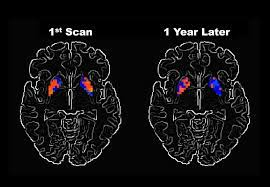Parkinson's Disease: Recently a study was conducted regarding the diagnosis of Parkinson's disease. It was found that diagnosis of this disease can also be possible with the help of blood tests. Due to this, it is hoped that in the future, doctors may be able to detect the early stages of Parkinson'sHowever, this research has not been completed yet and it may take a few years for this experiment test to reach everyone. At present, Parkinson's disease is diagnosed by looking at the symptoms. In such a situation, a blood test can help in catching this disease in the beginning itself. If it is detected in the early stages, doctors can control Parkinson's with the help of therapy. Let us tell you that as this disease spreads, it causes more damage to the nervous system.
How will blood tests work?
This test is designed to detect damage to mitochondrial DNA, which is thought to be linked to the disease. Early studies suggest the test can detect higher levels of damage in the blood of Parkinson's patients than in people who do not have the disease.
What is Parkinson's disease?
Parkinson's is a brain-related disease, due to which it becomes difficult to control the body. Symptoms of this disease can start slowly and become severe. As the disease progresses, people start having trouble walking, standing, talking, and even sitting. The patient's hands and legs keep moving continuously. According to studies, this disease affects men more than women. Parkinson's disease is usually seen only after the age of 60. Apart from this, there are about 5% to 10% of people who start experiencing its symptoms from the age of 50.
What are the early symptoms of Parkinson's?

Symptoms of Parkinson's disease often start in one part of the body. As this disease progresses, it starts affecting more and more parts of the body.
- Persistent trembling or rapid shaking of the palms, arms, legs, jaw, or head
- muscle stiffness
- physical activity becoming difficult
- Loss of balance, which can sometimes cause the patient to fall
- Depression and emotional changes
- Difficulty swallowing, chewing, and speaking
- urinary problems
- poor digestion such as constipation
- skin problems
Disclaimer: The advice and suggestions mentioned in the article are for general information purposes only and should not be taken as professional medical advice. If you have any questions or concerns, always consult your doctor.










